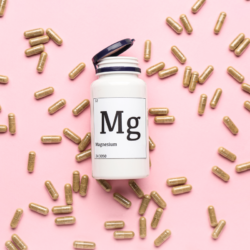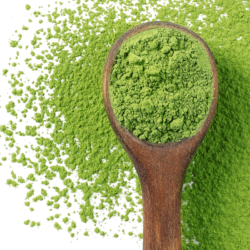Taurine is a sulphur-containing amino acid that has become a staple in dietary supplements and energy drinks, largely thanks to its reputation for boosting health benefits. While it is valued for its antioxidant properties, its role in the cardiovascular system, and its impact on neurological function, it isn’t without its drawbacks. In this guide, we take an honest look at the adverse effects of taurine to help you navigate its potential risks and understand where the limits of use actually lie.
What exactly is taurine?
Technically known as 2-aminoethanesulphonic acid, taurine is a non-essential amino acid. This means your body can produce it on its own using cysteine and methionine. Unlike most amino acids, it doesn’t build protein; instead, it floats through the body playing a vital role in biological processes. You’ll find it naturally in meat, fish, and dairy, but most people know it as the “star” ingredient in vitality-boosting food supplements and energy drinks.
Beyond just giving you a “kick,” it helps regulate cell volume and supports cardiac and muscular functions while fighting oxidative stress. But despite these perks, excessive or long-term consumption can lead to some unexpected side-effects.
The downsides: What are the undesirable effects?
Heart health and over-consumption
It is ironic that taurine is often sold for heart support, because too much of it can actually do the opposite. High doses have been linked to an increased heart rate, palpitations, and high blood pressure. This is a major concern when it’s mixed with stimulants like caffeine—a standard recipe for most energy drinks. This combo overstimulates the nervous system, which in rare but serious cases, can lead to arrhythmias or even cardiac arrest.
Kidney strain and high dosages
Your kidneys bear the brunt of filtering what you consume. Excessive taurine can ramp up glomerular filtration, which sounds like a good thing but actually forces the kidneys to work overtime. This can mess with your balance of electrolytes (like sodium). If you have pre-existing kidney disease, this extra workload is risky and could lead to acute kidney damage.
Neurological impact: When the brain gets too much
Since taurine interacts with neurotransmitters, it can have a direct effect on your mood and brain activity. While it’s often used to relax, “abuse” of the substance can backfire, causing irritability, anxiety, or in very extreme cases, convulsions. People with a history of neurological disorders should be particularly careful.
[2025 Discovery] A new concern: Taurine and Leukemia
We must highlight a significant breakthrough published in Nature (2025). High-level research has found a worrying link between taurine and Acute Myeloid Leukemia (AML). It appears that certain cancer cells can essentially “hijack” taurine, using it as a fuel source to grow and survive. By pumping taurine through their cells, these cancerous cells multiply much faster.
This means that while taurine might support healthy cells, it could also potentially speed up the progression of blood cancers. If you have a family history of leukemia or hematological issues, you should exercise extreme caution with supplementation.
How much taurine is actually safe?
The “sweet spot” for most adults is between 500 mg and 2,000 mg per day. This range is generally considered safe for boosting energy and supporting the metabolism.
The trouble starts when you cross the 3,000 mg mark. At this level, many people report side effects like nausea or diarrhea. If you’re pushing past 6,000 mg per day, you are entering “uncharted territory” where long-term safety data simply doesn’t exist, and the risk to your heart and kidneys becomes much more real.
Should you keep drinking energy drinks?
The popularity of energy drinks among young people and busy adults is understandable, but the excessive consumption of these cans is a genuine health issue. Between sleep disturbances and agitation, there is also a real risk of psychological dependence. The mix of caffeine, massive amounts of sugar, and taurine creates a cocktail that can be hard on your mental health and your vital organs.
Taurine isn’t “bad,” but it isn’t a miracle cure either. It requires a tailored approach. Given the recent 2025 data on cancer cell growth, talking to a health professional before starting a new supplement routine is more important now than ever.
FAQs
- Is taurine okay for kids?
Generally, no. Children’s systems are far more sensitive to the stimulants often found alongside taurine in energy drinks. - Does taurine cause cancer?
The 2025 research doesn’t say taurine *causes* cancer, but it suggests it can act as “fuel” for leukemia cells that are already present. - What happens if I take too much for a long time?
You risk cardiovascular strain, kidney fatigue, and potentially disrupting your brain’s natural neurotransmitter balance. - Can I take it with my current medication?
It varies. Always check with your doctor to avoid any interactions. - How do I get taurine naturally?
Stick to fish and meat. These provide the amino acid in safe, physiological doses that don’t overwhelm your system.
Sources
- Tzang, CC., et al. Cardiovascular benefits of taurine: a systematic review. Nutr J 23, 93 (2024).
- Nature Journal (2025). “A downside of taurine: it drives leukemia growth.” Study on SLC6A6 and AML.
- University of Rochester Medical Center. Report on Taurine/Leukemia risks (2025).
- Goldbach, M. The hidden risks of energy drinks. BUHealth. 2024.
- Siyi Song, et al. Taurine and cardiovascular injury prevention. Food Bioscience, 2024.






The statement about Taurine being safe is wrong. In the section on ,’What dose of taurine is safe for my health?’, it states that ‘Taurine, although beneficial in moderate doses, etc … ‘
Attached is a link to a statement by Rochester University, USA, highlighting a Paper printed by Nature magazine, and a further link to that Research, laying out how Taurine can adversely affects lymphocyte cell manufacture, and is a direct cause of the blood cancer, leukemia.
https://www.urmc.rochester.edu/news/story/a-downside-of-taurine-it-drives-leukemia-growth
https://www.nature.com/articles/s41586-025-09018-7#Abs1
Hello,
Thank you very much for your comment and for sharing these high-level scientific resources.
We pay very close attention to scientific monitoring, and the recent publication in Nature that you mentioned represents a major step forward in understanding cellular mechanisms related to taurine. This research effectively highlights previously unknown risks regarding how taurine can affect certain immune cells (lymphocytes) and its potential role in the progression of pathologies such as leukemia.
The safety of our readers is our absolute priority. Therefore, we would like to inform you that our blog post is currently being updated. We will be integrating these crucial new findings to provide a more nuanced perspective on dosage recommendations and to offer more precise warnings regarding these potential risks, which go beyond the cardiovascular or renal issues traditionally cited.
Your contribution is invaluable in helping us maintain a rigorous and up-to-date level of information. Thank you again for your vigilance and your active participation in the quality of our blog.
Best regards,
Elodie